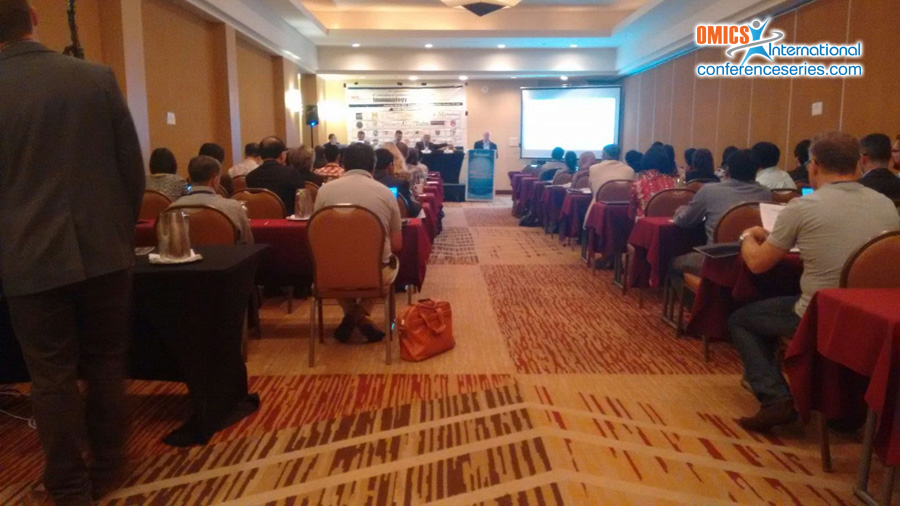
Johnny Huard
Visiting Distinguished Wallace Professor and Vice Chair – Research Department of Orthopaedic Surgery at The University of Texas Health Science Center at Houston Medical School
Title: The role played by the host inflammatory cells in adult stem cells mediated tissue repair
Biography
Biography: Johnny Huard
Abstract
Murine muscle-derived stem cells (MDSCs) have been shown capable of regenerating bone in a critical size calvarial defect model when transduced withrnBMP 2 or 4; however, the contribution of the donor cells and their interactions with the host cells during the bone healing process have not been fullyrnelucidated. To address this question, C57/BL/6J mice were divided into MDSC/BMP4/GFP, MDSC/GFP, and scaffold groups. After transplanting MDSCs intornthe critical-size calvarial defects created in normal mice, we found that mice transplanted with BMP4GFP-transduced MDSCs healed the bone defect in 4rnwk, while the control groups (MDSC-GFP and scaffold) demonstrated no bone healing. The newly formed trabecular bone displayed similar biomechanicalrnproperties as the native bone, and the donor cells directly participated in endochondral bone formation via their differentiation into chondrocytes, osteoblasts,rnand osteocytes via the BMP4-pSMAD5 and COX-2-PGE2 signaling pathways. In contrast to the scaffold group, the MDSC groups attracted more inflammatoryrncells initially and incurred faster inflammation resolution, enhanced angiogenesis, and suppressed initial immune responses in the host mice. MDSCs werernshown to attract macrophages via the secretion of monocyte chemotactic protein 1 and promote endothelial cell proliferation by secreting multiple growthrnfactors. Numerous studies have shown that cycloxygenase-2 (Cox-2) deficient mice have a delayed and reduced bone fracture healing capacity. Previously,rnwe showed that COX-2 is expressed dynamically during muscle-derived stem cell (MDSC) mediated bone regeneration; however, the identity of the COX-2rnexpressing cells and the role they play in the bone healing process has not been clearly elucidated. This study investigated the role of COX-2 expression by donorrnand host cells in MDSC-mediated bone repair utilizing a critical size calvarial defect model in mice. We found that bone morphogenetic protein 4 (BMP4) andrngreen fluorescent protein (GFP)( BMP4/GFP) transduced MDSCs formed significantly less bone in the defect area of Cox-2 knock-out (Cox-2KO) mice thanrnwild-type (WT) mice. Moreover, MDSCs isolated from the Cox-2KO mice and transduced with BMP4/GFP also form significantly less bone than MDSCsrnisolated from the WT mice when transplanted into calvarial defects created in CD-1 nude mice. Histologically, there was less collagen 1 matrix deposition andrnfewer GFP positive osteoblasts and osteocytes present in the new bone area in the Cox-2KO MDSC/BMP4/GFP transplantation group than the WT MDSC/rnBMP4/GFP group. At day 14, there was a reduction in BMP4-pSMAD1/5/8 signaling in the Cox-2KO MDSC/BMP4/GFP group. Furthermore, there were fewerrnGFP+Ki67+ cells found in the Cox-2KO MDSC/BMP4/GFP group than in the WT MDSC/BMP4/GFP group indicating a reduction in the proliferative capacityrnof the Cox-2KO group in vivo. A reduction in cell survival and direct osteogenic differentiation capacity was also observed with the Cox-2KO MDSC/BMP4/rnGFP cells, which is likely involved with the impaired bone regeneration observed with these cells. These effects were mediated, at least in part, by the downrnregulation of IGF1 and IGF2 expression in the Cox-2KO MDSCs. In addition, the Cox-2KO MDSC/BMP4/GFP cells recruited fewer macrophages to the defectrnsite by day 3, and a slower resolution of the inflammatory process was observed when compared to the WT- MDSC/BMP4/GFP cells.rnrnOur findings indicated that BMP4GFP-transduced MDSCs not only regenerated bone by direct differentiation, but also positively influenced the host cellsrn(inflammatory cells) to coordinate and promote bone tissue repair through a paracrine mechanism. Furthermore, we found that COX-2 expression by the donorrnand host cells played an important role in MDSC mediated bone regeneration, though the lack of COX-2 expression by the donor cells appear to be morerndetrimental to bone formation than the lack of COX-2 by the host. The impaired bone regeneration capacity of the Cox-2KO MDSCs was due to a reduction in cellrnproliferation and survival capacities, less efficient osteogenic differentiation and a reduction of the cells’ ability to recruit host inflammatory cells to the injury site.
Speaker Presentations
Speaker PDFs
Speaker PPTs Click Here




